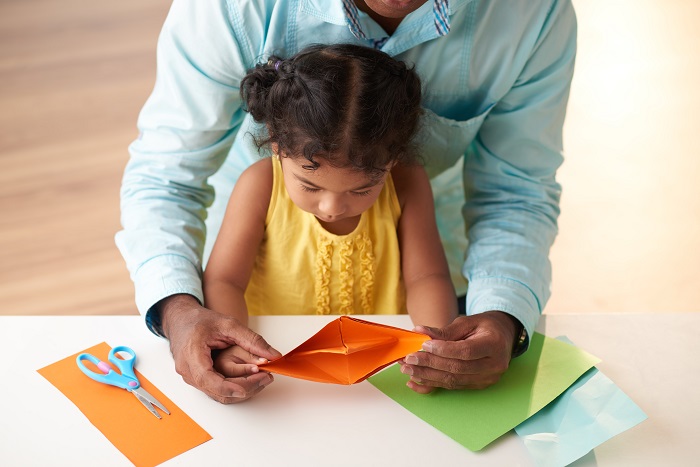Parenting is such a tumultuous journey that can send your emotions on a wild ride, but amidst all the ups and downs, there’s nothing quite as gratifying as witnessing your child’s emotional resilience blossom over time. Today, we’ll delve into the realms of emotional resilience in children, coping skills for preschoolers, coping strategies for kids, and coping emotions in kids.
Observing your child’s response to adversities and stumbling blocks, you may have come to the realization that their aptitude for rebounding from such obstacles is not always consistent. This can be attributed to the reality that the notion of emotional resilience is an intricate and pliable attribute that can be sharpened and refined through steadfast commitment and a protracted passage of time. The goal is to foster a supportive environment where your child can learn to manage emotions and build their resilience toolbox.
Emotional resilience in children begins with helping them understand their feelings. Ascertaining and articulating emotions can pose a formidable challenge for youngsters, but it is an indispensable facet of their emotional maturation. By urging and instilling in your child the habit of verbalizing their sentiments, you are facilitating a culture of transparent discourse, and instilling in them the idea that emotions are an intrinsic aspect of the human experience.
While it may appear that imparting coping mechanisms to children of preschool age is an exceedingly intricate notion, in reality, it is an imperative component of emotional intelligence development that cannot commence too early. You could start by teaching your child the art of deep breathing, a technique that can aid them in acquiring the skill of emotional regulation. You can also practice mindfulness activities together, such as colouring, listening to calming music, or taking a nature walk. Engagement in these exercises can aid your offspring in fostering a cognizance of their own sentiments and mastering the art of directing their attention towards the current juncture.
As your child grows older, coping strategies for kids become more nuanced. To successfully impart to your child the art of emotional self-regulation, it behoves you to adopt and exhibit constructive coping mechanisms, thereby modeling sound emotional management. You will be effectively communicating to your little one the notion that encountering a plethora of emotions is an inherent part of life, and that it is imperative to express them in a manner that is befitting and appropriate. Suppose you find yourself grappling with exasperation; in that case, you may demonstrate the virtue of taking a few measured deep breaths or going for a leisurely stroll to dispel the mental fog.
Do you know that developing your child’s problem-solving abilities is another crucial component of fostering emotional resilience? Encourage your child to brainstorm solutions when they face challenges, whether it’s a disagreement with a friend or difficulty with a school assignment. Moreover, you may initiate the concept of “emotional first aid” by equipping your pupils with a range of coping mechanisms, such as soliciting assistance from a responsible adult or participating in self-compassion rituals. This allows your child to have multiple options when dealing with difficult situations.
Coping emotions in kids
Coping emotions in kids – Teaching your child about coping with emotions in kids starts with fostering empathy. Encourage your child to adopt the perspective of another person in order to comprehend their thoughts and feelings more fully. This not only helps your child develop compassion but also strengthens their ability to navigate relationships effectively.
Educating your child on the value of self-care is equally essential. Encourage them to take breaks, partake in enjoyable activities, and lead healthy lifestyles. These practices can help your child establish a strong foundation for emotional resilience and well-being.
To propel your child’s emotional evolution to greater heights, it is advantageous to expose them to tailored resources commensurate with their age brackets, such as literature, games, or applications that focus on emotional intelligence and self-management techniques. These tools can make learning about emotions fun and engaging, and they can also provide valuable opportunities for family discussions.
Here are some additional tips to build resilience and develop coping skills for preschoolers:
It is imperative to establish an environment that is both secure and supportive, where your child feels entirely at ease divulging their emotions and seeking assistance as needed. This means ensuring that your abode exudes an ambience that is conducive to the open expression of feelings and the solicitation of help.
Be patient: Building emotional resilience in children takes time, and your child will likely experience setbacks along the way. Offer your support and understanding as they navigate these challenges.
Validate their feelings: It is paramount that you communicate to your child the notion that experiencing a gamut of emotions is entirely natural, and that their sentiments are valid and consequential.
Encourage healthy risk-taking: Allow your child to explore new activities or take on challenges that help them develop confidence and a sense of accomplishment.
Foster social connections: Encourage your child to build strong relationships with peers, family members, and other trusted adults. These connections can provide valuable support during difficult times.
Teach the value of failure: Highlighting the reality that fumbling is a fundamental element of the educational experience, it cannot be overemphasized that it is indispensable to extract knowledge from errors and utilize them as prospects for progress and advancement.
Offer praise and encouragement: Recognize your child’s efforts and achievements, and offer positive reinforcement when they demonstrate resilience and healthy coping strategies.
Set realistic expectations: Help your child set achievable goals and understand that perfection is not the objective. This can help them develop a more balanced perspective and reduce the pressure they may feel.
Be a good listener: Offer a non-judgmental ear when your child wants to talk about their emotions and help them feel heard and understood.
Seek professional help if needed: In the event that you harbour reservations regarding your child’s emotional welfare or their capacity to navigate hurdles adeptly, it would be judicious to contemplate the prospect of enlisting the assistance of a mental health specialist.
In conclusion, helping your child build emotional resilience and coping skills is a crucial aspect of parenting. Through the cultivation of a nurturing atmosphere, the impartation of knowledge about emotions and coping mechanisms, and the inculcation of a proclivity for wholesome risk-taking, you can equip your child with the requisite skills to confront life’s hurdles with poise and self-assurance.
Keep in mind that developing emotional resilience in children is a lifelong journey and that it is never too late to begin. So, take a step back and observe the world through your child’s eyes, and let their unique emotional landscape guide your approach to nurturing their resilience and coping skills.
At EuroKids, we believe in the wholesome development of a child. Our carefully curated curriculum also revolves around the same ethos. To know more, visit your nearest Eurokids branch today!
















